Hey you, wake up! What are you reading? I have this essay in my head, it is written, in my head, when I birth it, will you take a look at it? What is it about? I don’t know, to be honest. But there are all these thoughts in my head. I am thinking of the writer and purpose. I return again to the priest, Chinua Achebe, do you know what he said when he was asked why he wrote children’s books? He said he wrote them because when he was a parent of young children, he could not find any books that were written specifically for his children. So he wrote for them. Now, that is purpose. It is in the question: Why do you write? And in the question: Why should you write?
I think writing should have a purpose, otherwise why bother? It doesn’t have to be high-minded but the writer should have a ready answer for why he or she is drawn to share words with the world. The African writer in my view has even more of a burden to fashion a narrative of purpose: Why are you writing? Do you entertain? Do you educate? Do you stir the loins of social, political and economic consciousness? We are living in precarious times, one in which technology has made it easy for those of means to shun the community of the whole in preference for the community of one or ME. Many things that seemed to require communal effort and communion in the past can now be performed by jabbing at a monitor or smartphone. This gentrification comes with unintended consequences as we build islands of despair in ancestral lands that still require teamwork to move into the 21st century.
It was not always like this. Writers have always been in the forefront of change in Africa. We can point to the stories of Achebe, Wole Soyinka, Ngugi wa Thiong’o, Flora Nwapa, and Buchi Emecheta to draw from in fighting the tyranny of guns and patriarchy. Some, like Christopher Okigbo and Kenule Saro-Wiwa paid for their ideals with their lives. Today, it just seems that African writers have created safe havens for themselves using tools of empowerment and now prefer to be coyly apolitical even in the face of unspeakable tyranny. Today, the freest spaces in Africa are occupied by writers and intellectuals where they have great conversations about patriarchy, misogyny, empowerment, children’s safety, gay rights, environmental safety, etc., etc. Those spaces are rarely ever expanded to provide refuge for those without voices in whose names we write our stories. To those who say that the writer should not be obligated to be the conscience of a society, I say yes, but then you can’t have it both ways, simply read the titles of contemporary works of African literature, they are pre-occupied with social and political anxieties. To the extent that the profits only accrue to the writer with no discernible action, one could make a compelling case that the writing is self-serving. How has what we talk about in our books and essays made a change in the lives of those we advocate for?
I would like to read Achebe’s A Man of the People again. It is prescient in how Achebe foresaw the traumatic events of 1966 in Nigeria. It is visionary in how it describes today’s political climate to the letter, five decades after. The only thing missing in it is the Internet and the smartphone. You should read Okigbo’s poems, they are written with the blood of a seer. The other day I came across this 2010 piece on Achebe by Nicholas Wroe in the UK Guardian. I hope you find the time to read it. Achebe makes a profound point about the writer’s purpose and responsibility:
“We have endured a terrible failure of leadership – not just individuals, but a whole class of potential leaders, from which I do not absolve myself. The role of the intellectual is difficult. We should live by what we preach and we should speak out. In that way we always seemed to be superior to our former western leaders. For them, writers and painters just had to write and paint and keep out of politics. Leadership in all its forms is a sacred trust in a democracy, almost like an anointed priesthood.”
You can tell I have been reading up on Achebe a lot. Here, I found this awesome interview of him by James Baldwin; if you don’t read anything else this week, please read this. Achebe is blunt about our responsibilities as writers and intellectuals: We should not sit on the fence.
“Those who tell you ‘Do not put too much politics in your art’ are not being honest. If you look very carefully you will see that they are the same people who are quite happy with the situation as it is… What they are saying is don’t upset the system.”
Perhaps I am depressed. Do you blame me? Between America and Nigeria, there does not seem to be much joy on the streets. I find myself listening to the poets of the sixties, Bob Dylan and Paul Simon and Art Garfunkel, so haunting and sad is the music. I put Simon & Garfunkel’s The Boxer on repeat and drive and drive on the streets of America, just haunted by its sadness and our condition.
When I left my home and my family
I was no more than a boy
In the company of strangers
In the quiet of the railway station
Running scared,
Laying low, seeking out the poorer quarters
Where the ragged people go
Looking for the places
Only they would know
I miss the songs of my childhood. I digress. Sigh. What was I saying? I am not saying that purpose should be political only. I do think writers should have a social conscience. I love what this generation of writers is doing – when they are not writing books. There is quite a bit of innovation online and on social media. Writers are writing about a dizzying range of subjects and confronting taboo topics in the process. I am currently reading We Are Flowers: An anthology of Queer Art. Please read it (here, another gift for you!) It is a beautiful piece of work, I am blown away, I can’t stop reading this; to be honest, I am having a hard time coming up with work that my eyes have seen that rivals this in recent years. The quality and beauty of the work fill me with immense pride. It speaks to innovation and courage. This is not just another anthology of queer art, it is a collection of breath-taking beautiful works of art, each piece stuns with its in-your-face courage and beauty. And sadness. Many of the names are pseudonyms of real human beings who wisely must remain anonymous because to be out could be a death sentence. That’s what I am talking about.
I just finished reading Isaac Newton Akah’s little book on Lagos, Living in ‘Gidi. Interesting little book, I liked it because it forced me to reflect on the fate of your generation of writers in a world that only celebrates analog literature.
Can you believe I actually read an essay I found myself, not one you sent me? Which essay, you ask? You know I am a big fan of Obama as the mystical African writer and I tell you all the time about the influence of his book Dreams from my Father in shaping my world view. Here, let me repay you for teaching me to read essays, here’s an awesome essay of Obama by Wesley Morris in the New York Times in which he establishes himself as the lover of the arts and ultimate Renaissance man. And there is this one that is my absolute favorite. It is a powerful interview of Obama that showcases his love for books and reading. He is quite the Renaissance man. That’s one thing I love about digital essays; they sometimes contain other essays, they are the dry meat that fills the reader’s mouth. I enjoy reading the essays you share on Twitter, they are one of the reasons I follow you on Twitter. I also follow the writer Oris Aigbokhaevbolo on Twitter for the same reason; he writes lovely essays and also shares eclectic essays. Follow him. Wait, you already follow him? SMH.
I have a new friend who is deep into reading and traveling, deeply eclectic, she sends me these lovely articles she carefully clips from real newspapers. It’s adorable, I picture her on Sunday mornings, this eclectic coolly cerebral lady, cup of tea in hand, reading literary pieces, touching photographs here and there, clipping pieces she likes and sharing them. I am loving both worlds, you send me stuff electronically and she sends me these clipped essays I am looking forward to. Last week she sent me two awesome essays, I want you to have; Annie Correal’s haunting Searching for Etta Mae Taylor and Michiko Kakutani’s brilliant Why ‘1984’ is a 2017 Must-Read. Here, now you can’t complain that I don’t share my presents with you. You are welcome. I also discovered that Thomas Sankara did not much care for African writers, hat tip to a Facebook post on Brian Bwesigwe’s wall. How? Well, it is in the book, Thomas Sankara Speaks: The Burkina Faso Revolution 1983–87. I got a copy and it is such a delight to be reading the mind of an African leader who was a deep thinker. What a concept.
I am reading VS Naipaul, The Bend in the River again. Every evening I read a couple of chapters of the book. There is no one like Naipaul, no one, who else will write prose like this: “The world is what it is; men who are nothing, who allow themselves to become nothing, have no place in it”? I am taken by how incredibly beautiful – and how incredibly cruel the book is. The disrespect to Africans, the dehumanization is deliberate and fiction is just a cowardly cover for Naipaul’s contempt and self-loathing. Or is it? The world is what it is. Sigh.
When I am done reading my copy of Yemisi Aribisala’s collection of essays, Longthroat Memoirs, Soups, Sex and Nigerian Buds, I’ll send it to you. Now, that is how to be different. Yemisi proves that I am a sapiosexual, I am so in love with her mind. *swoons*. Hear her, in the essay, The Snail Tree:
“I have saved the best words for you. For You. There are places in a woman that a penis will never reach. I have said it. And what I mean to say and don’t feel under any pressure to reiterate, but will say again anyway because I was asked for my opinion, is that sex is overrated.”
Those are the words of a goddess. I am reading this book for the second time in a month. Kai. I think I will just send you your own copy. You must read The Snail Tree, it is a free-flowing discussion about everything from snails to sex to Binyavanga Wainaina with everything about home-centered empowerment, literature, living and loving thrown in between. It starts out with quiet defiance and quiet force and ends in quiet defiance and quiet force. With this collection. Yemisi Aribisala plants herself in that pantheon of serious thinkers, the new Obierikas who really think hard about these things. Many make me laugh, sigh and some even force my allergies to aggravate my tear ducts. And they give me hope that this generation of writers will do great things with the English language the way Achebe dreamed it. Achebe lives. Have you eaten?
“Dear Genevieve” is a writing-advice series. The weekly missive allows Ikhide Ikheloa, one of Africa’s foremost literary critic, to dish out prized advice on various aspects of writing. Stop by next Monday for the next email.
Read more from the series:
Pt. 1: Dear Genevieve, It’s All in the Narrative | By Pa Ikhide
Pt. 2: Dear Genevieve, Find Your Voice
Pt. 3: Dear Genevieve, Find Your Space
Pt. 4: Dear Genevieve | The Writer Should Be Paid for Content on the Internet
***********
About the Author:
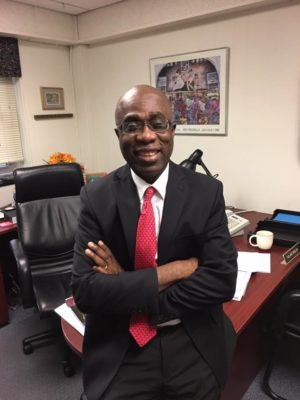 Ikhide R. Ikheloa or Pa Ikhide is a social and literary critic who writes non-stop on various online media. He was a columnist with Next Newspaper and the Daily Times, Nigeria, where he held forth and offered unsolicited opinions on any and everything to do with literature and the world. He has been published in books, journals and online magazines and he predicts: ‘The book and the library are dying. Ideas live.” Find him on twitter @ikhide
Ikhide R. Ikheloa or Pa Ikhide is a social and literary critic who writes non-stop on various online media. He was a columnist with Next Newspaper and the Daily Times, Nigeria, where he held forth and offered unsolicited opinions on any and everything to do with literature and the world. He has been published in books, journals and online magazines and he predicts: ‘The book and the library are dying. Ideas live.” Find him on twitter @ikhide


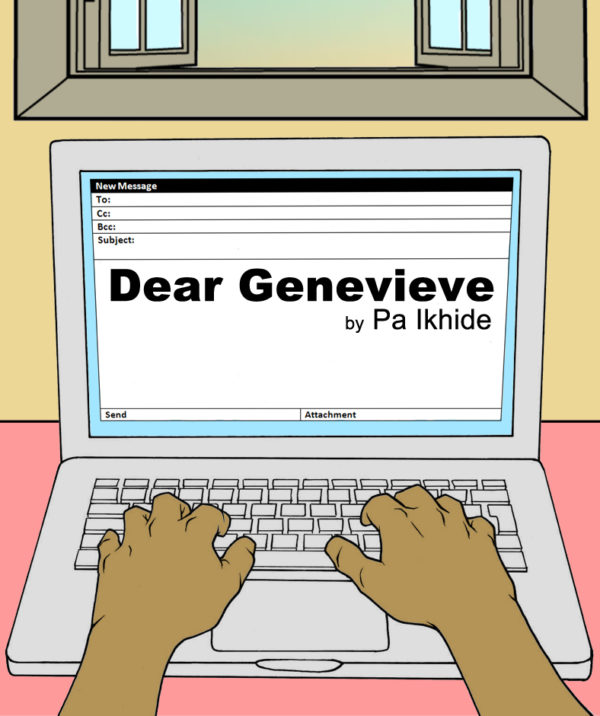
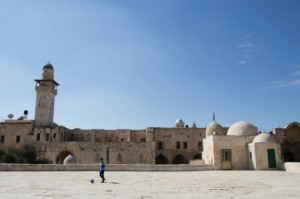
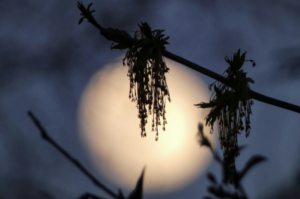

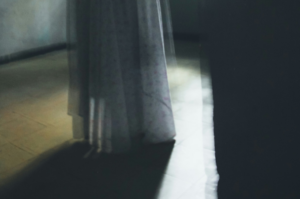



Oluwaseyi Gideon abidoye March 01, 2017 12:26
Achebe is a fountain of wisdom that never dries up. His books, essays and opinions always iginite the passion that burns away every barrier to any elevation of African and her writing. His writings are always up and alive. Yes he lives. And how Pa ikhide finds grace with words is amazing.